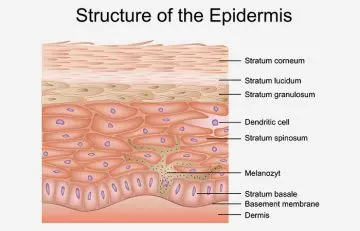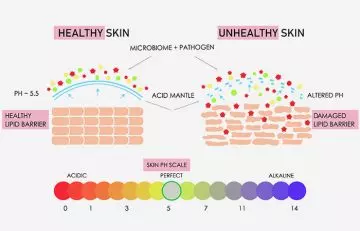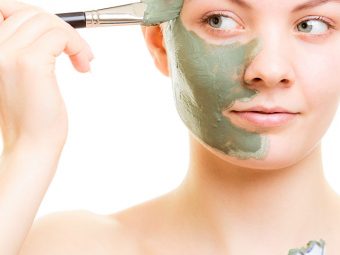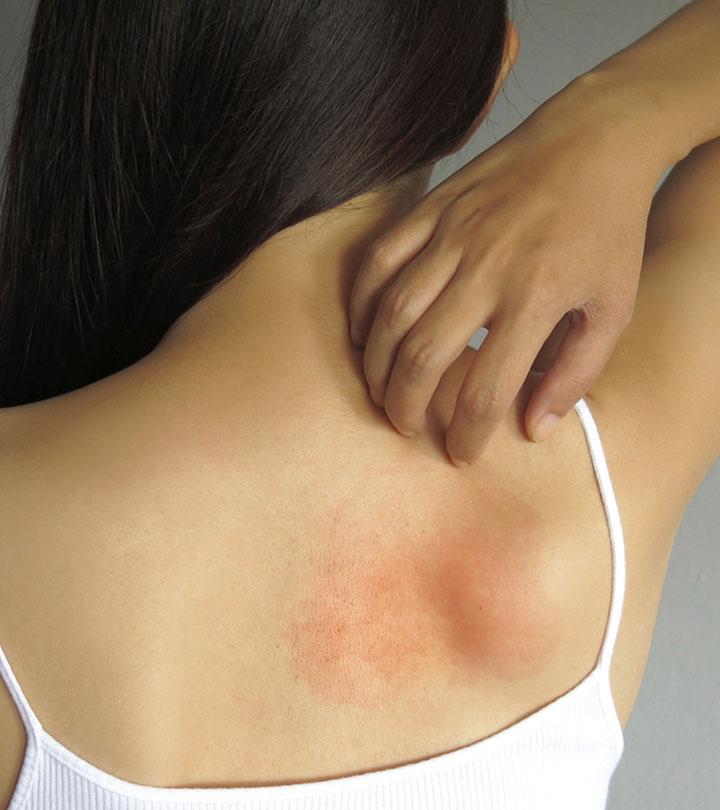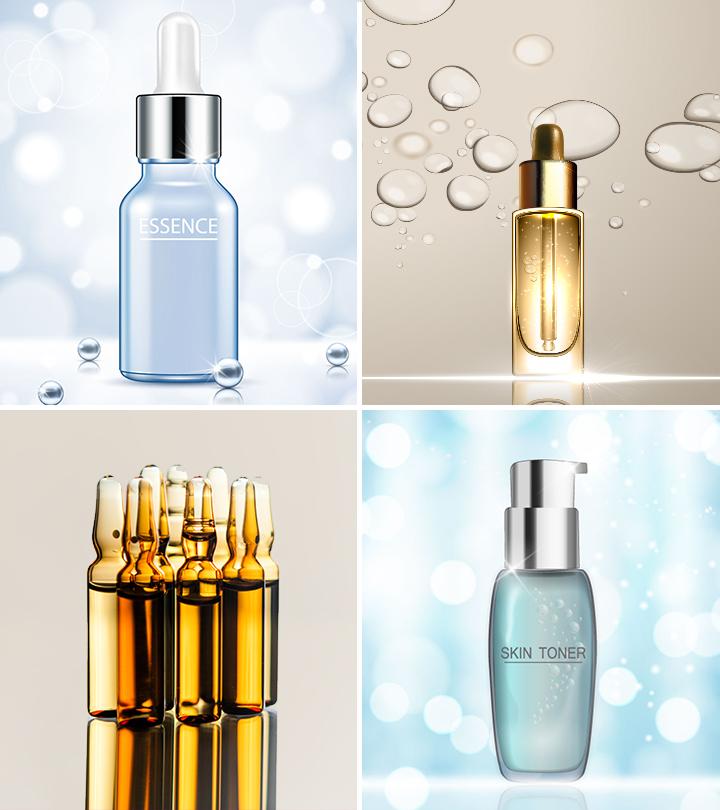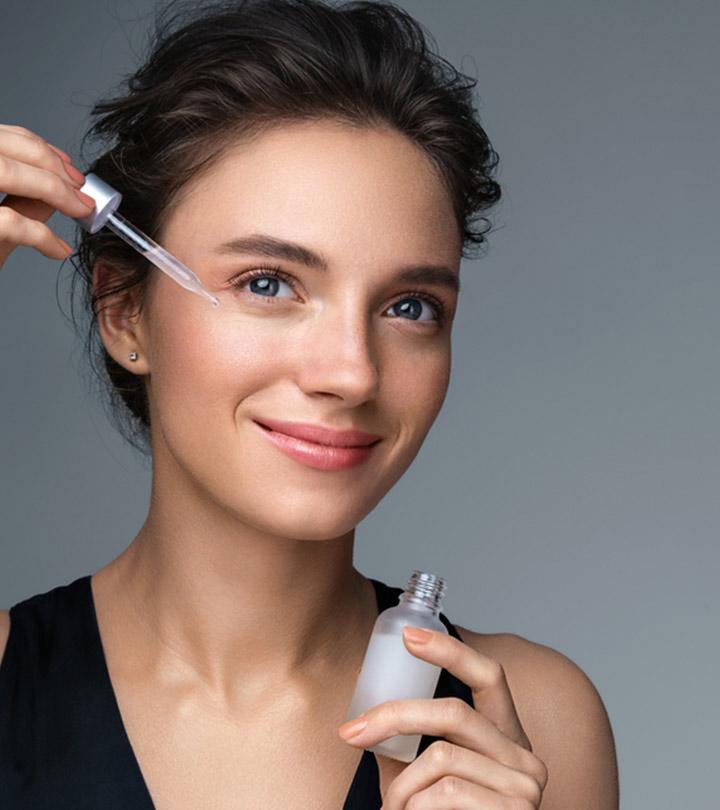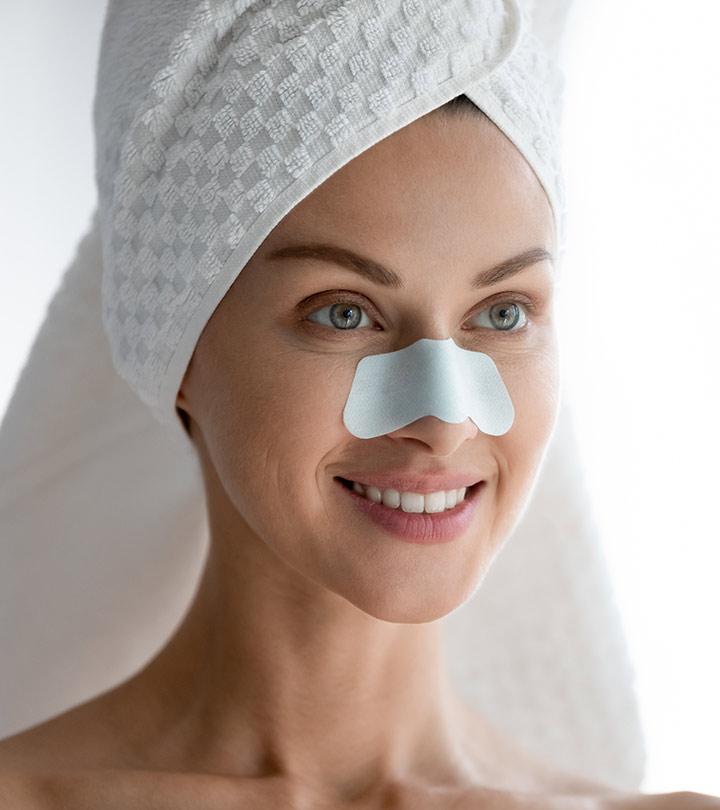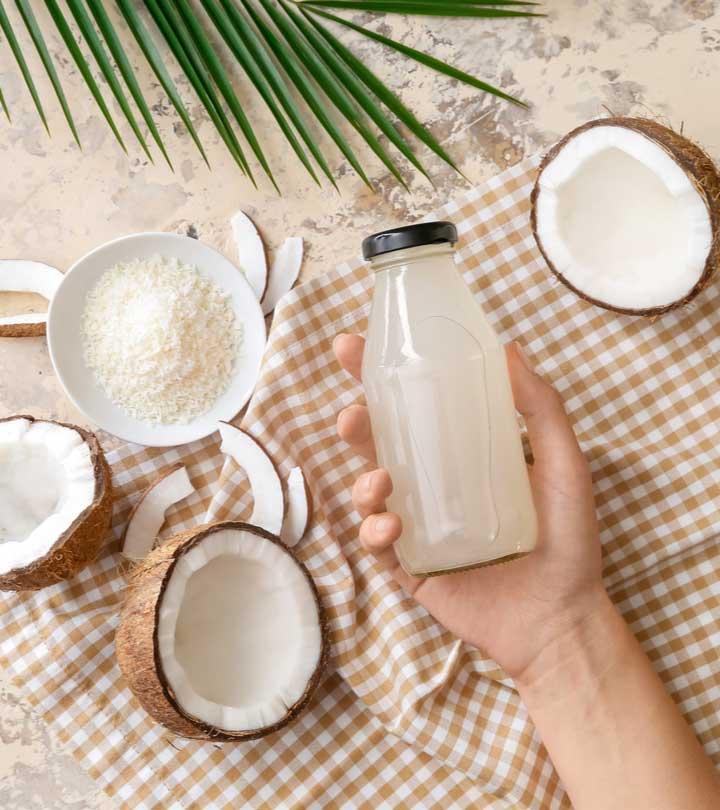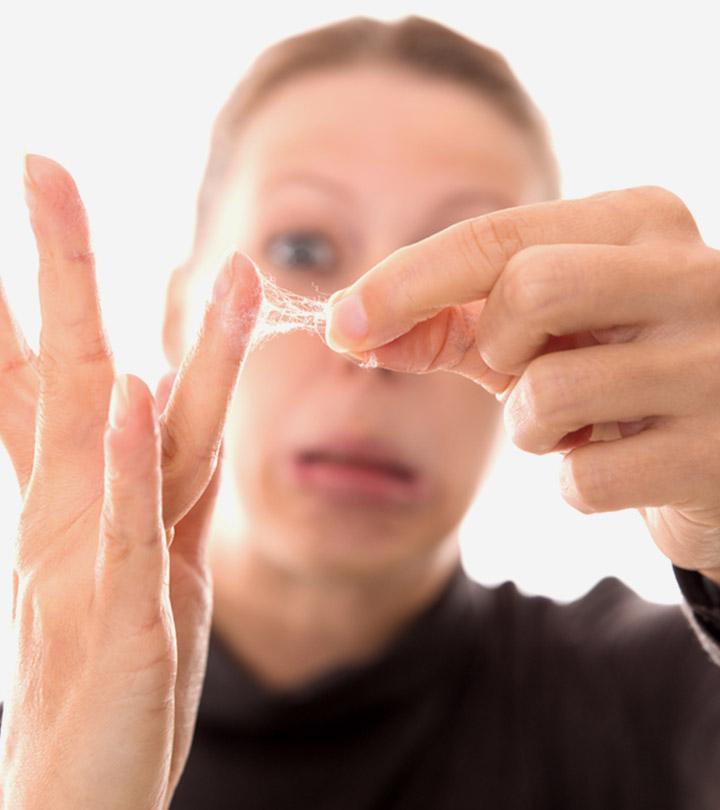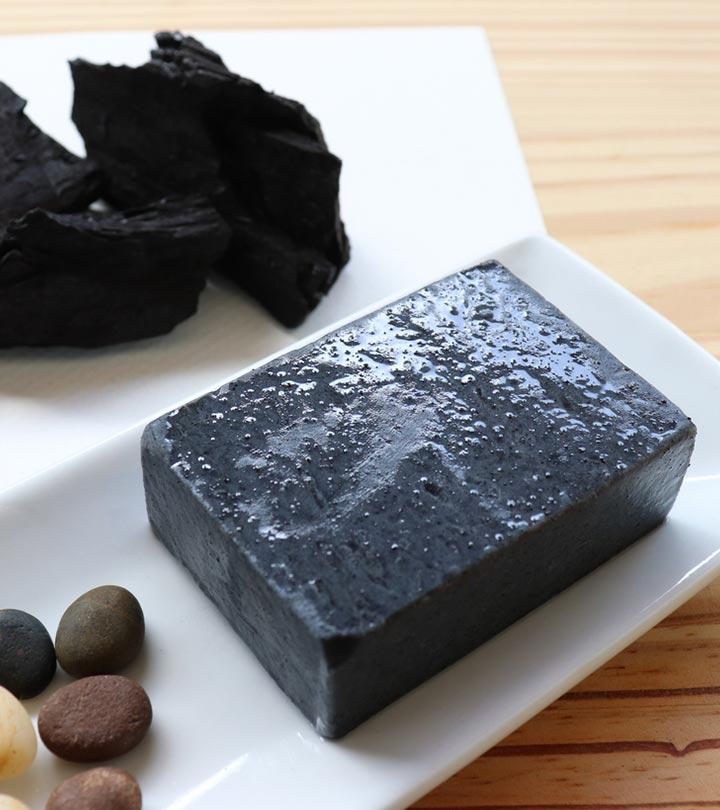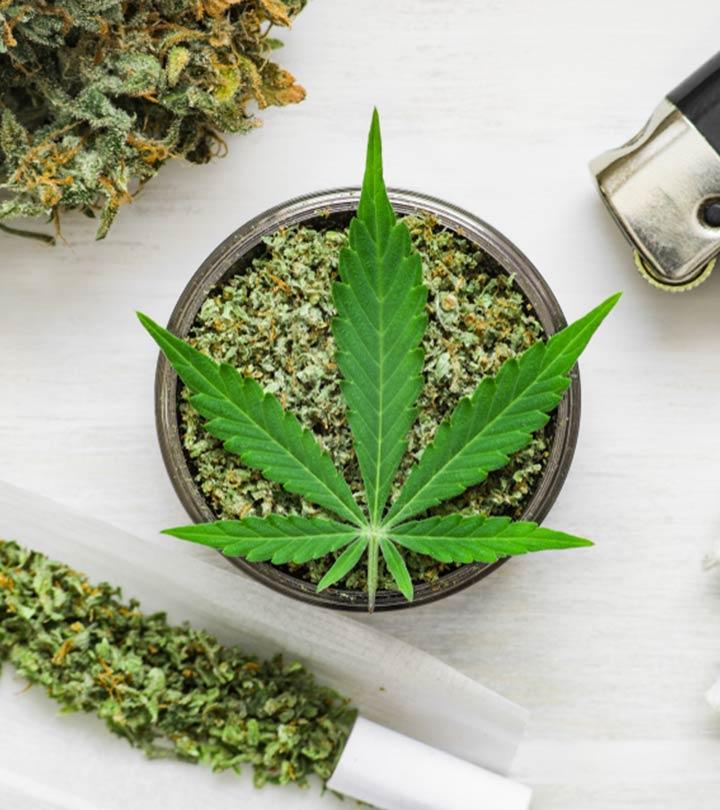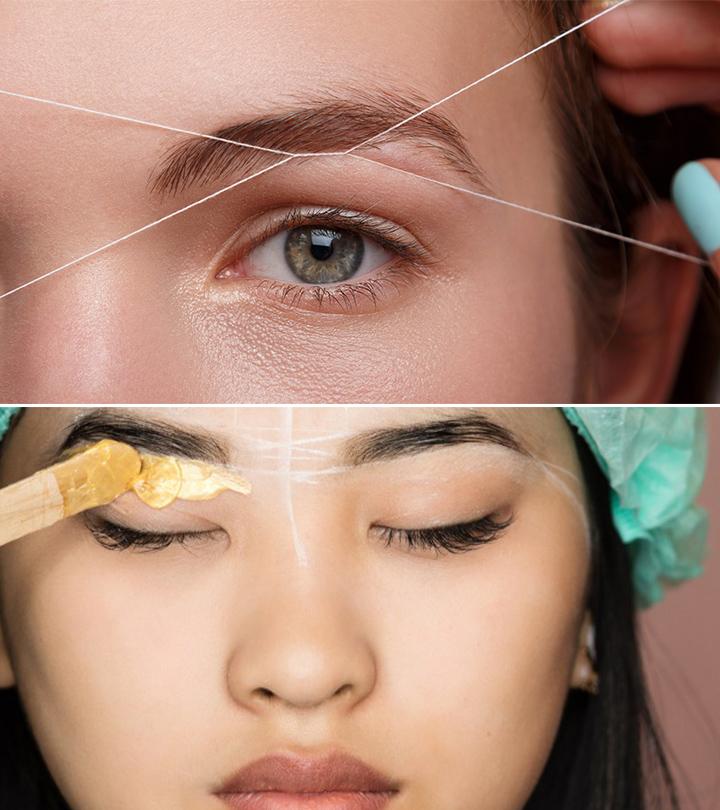What Is The Skin Barrier? How To Repair Using Best Hydrators
Protect your skin from external stressors and keep it hydrated and plump from within

Image: Shutterstock
Several external factors like allergens, pathogens, and pollution can affect your skin barrier. The outermost layer of your skin is the first line of defense against external aggressors and helps retain moisture and maintain glowing and healthy skin (1). However, your skin barrier can get damaged, and you may notice flaky, dull, and dry skin. Keep reading to learn how to restore your skin barrier and maintain glowing and healthy skin.
In This Article
What Is The Skin Barrier?
The stratum corneum (SC) is the outermost layer of the epidermis and is responsible for maintaining the skins barrier function. It is a highly organized, 3-dimensional structure made of lipids, fatty acids, ceramides, and protein layers stacked together to protect our skin. These lipid bilayers form a matrix called lipid lamellae (1). The stratum corneum locks in moisture to keep the skin plump, supple, and healthy.
The skin barrier performs numerous critical functions for maintaining skin health. Read in the next section.
What Does The Skin Barrier Do?
The skin barrier prevents transepidermal water loss (TEWL) to maintain skin hydration (2). A damaged barrier makes your skin vulnerable to damage caused by biological and environmental factors like microbes, UV rays, free radicals, allergens, toxins(3).
The skin barrier is responsible for:
- Maintaining body temperature (4).
- Regulating the electrolyte balance by preventing loss of ions, water, and serum proteins (2).
- Maintaining a mechanism for sensation (4).
- Maintaining hydration and epidermal permeability (5).
- Preventing UV damage (5).
- Preventing infection (4).
Healthy skin has an acidic pH to support the antimicrobial, antioxidant, and anti-inflammatory properties of the stratum corneum. This multifaceted protection provided by the skin barrier fights pathogens and prevents infections (5), (6).
There is no doubt that the skin barrier plays an important role in protecting our skin. However, multiple factors can impair or damage it. Keep reading to find out more.
What Damages The Skin Barrier?
Any substance or environmental factor that irritates, dries, or changes the skin pH and lipid structure can damage its barrier (7). These include:
1. Excessive or frequent use of products with harsh chemicals like:
- Detergents
- Cleansers
- Drying alcohols
- Alkaline ingredients
- Allergens
2. Extreme environmental factors like:
- Prolonged UV exposure
- Harsh or dry winds
- Exposing skin to hot and cold water
- Low humidity
There are ways to identify if your skin barrier is compromised. Look for the following signs and symptoms.
How To Tell If Your Skin Barrier Is Damaged
- Dry And Flaky Skin: An impaired skin barrier cannot lock moisture in the cells. This affects the skin ceramide levels. Ceramides are crucial for maintaining skin barrier functions, such as water permeability (8). As a result, your skin turns dry and flaky. However, dryness is not an exclusive sign of a damaged skin barrier.
- Red, Inflamed, And Itchy Skin: Skin irritation is a primary symptom of a damaged skin barrier. You may notice redness, inflammation, itchiness, and sensitivity.
- Burning Sensation: Skin irritation or a burning sensation when skin care products are applied is common when the skin barrier is compromised.
- Skin Conditions: Damaged skin barrier is one of the main reasons for skin issues like rosacea, eczema, psoriasis, acne, contact dermatitis, and ichthyosis.
- Premature Signs Of Aging: Premature signs of aging like fine lines, wrinkles, sagging skin are attributed to the weak skin barrier.
If you have a compromised skin barrier, there are ways to repair it. Keep reading to find out.
How To Repair Skin Barrier
1. Keep It Hydrated
Ensure that your skin is well hydrated and moisturized. Heres what you can do:
- Use moisturizers and emollients (9).
- Use products with hyaluronic acid, ceramides, and peptides for additional nourishment.
- Add nourishing serums and oils to the skin care routine.
- Drink plenty of water to stay hydrated from within.
 Quick tip
Quick tipA study conducted on 3978 American adults found that 60% of men did not moisturize at all, while 39% moisturized their face at all. Out of this, 16% of men moisturized their face daily, while 23% moisturized less frequently.
2. Protect Your Skin
Protect your skin from the harsh sun and extreme weather conditions by following these methods:
- Use sunscreen with at least SPF 30.
- Avoid prolonged sun exposure. Use an umbrella or scarf to protect your skin.
- Avoid taking long and hot showers. Use lukewarm water.
 Quick tip
Quick tip3. Avoid Harsh Chemicals
Harsh chemicals can damage your skin barrier and alter the skin pH. Follow these tips:
- Avoid using products with alkaline and drying agents, such as alcohols and sulfates.
- Do not wash your face often, as it can strip natural oils and moisture.
- Avoid abrasive physical scrubs and avoid frequent exfoliation.
4. Include Antioxidants In Your Diet And Skin Care Routine
Antioxidants are free radical scavengers and help prevent oxidative stress and premature aging to maintain a healthy skin barrier (10), (11). You may consume antioxidant-rich foods like berries, green leafy vegetables, and fruits. You may also use products containing antioxidants like alpha-tocopherol, vitamins C and E, and retinol (vitamin A-derivative).
Oral supplemention of antioxidants and collagen may also be considered to help prevent oxidative stress and boost collagen synthesis respectively.
You can also incorporate barrier repairing ingredients into your daily skin care routine. Check out the best ingredients to keep your skin barrier healthy.
The Best Hydrators For Your Skin Barrier
Hydration improves skin barrier resilience. When buying skin care products, look for the following ingredients to support a healthy skin barrier (4):
- Ceramides
- Hyaluronic acid
- Licorice extracts
- Dimethicone
- Petrolatum (avoid this if you have acne-prone skin)
- Paraffin wax treatment
The skin is the first line of protection against external factors, and the state of your skin barrier reflects its overall health. If the skin barrier is damaged, your skin will feel rough, bumpy, flaky, and dry. It may make your skin look dull. That is why it is crucial to take care of your skin barrier. Following a good skin care routine may help, but you also have to nourish your skin from within. Therefore, follow the tips discussed in the article, consume healthy food, drink plenty of water, and use skin-living ingredients to protect and restore the skin barrier.
Frequently Asked Questions
Does Aquaphor repair the skin barrier?
Aquaphor contains the necessary moisture to rebuild your skin’s barrier. It’s a glycerin- and petroleum-based ointment that protects, moisturizes, and heals the skin.
Can you permanently damage your skin barrier?
Skin barrier damage can usually be repaired. Even if your skin barrier has recently been disturbed (perhaps due to over-exfoliation with abrasive chemicals), repairing it should be simple if you seek care immediately
Can niacinamide repair the skin barrier?
Yes. Niacinamide enhances skin texture and repairs and improves the skin’s protective barrier function. This eventually minimizes inflammation that could manifest as dry, itchy, or flaky skin (1).
Key Takeaways
- The skin barrier controls body temperature, prevents the loss of water, proteins and ions, and protects the skin from UV damage.
- Harsh chemicals and environmental conditions change the pH level and lipid structure of the skin barrier, causing damage.
- If your skin is dry, flaky, inflamed, itchy, or displays any skin conditions such as acne and psoriasis, you may have a damaged barrier.
- Keeping your skin hydrated, protected, avoiding pH-altering products, and adding antioxidants to your diet and skin care routine can keep the barrier functioning properly.
Find ways to repair your damaged skin barrier. Watch this insightful video and get to know how to identify a damaged skin barrier and get skin care tips to restore and strengthen your skin’s natural protective barrier.
References
Articles on StyleCraze are backed by verified information from peer-reviewed and academic research papers, reputed organizations, research institutions, and medical associations to ensure accuracy and relevance. Read our editorial policy to learn more.
- Niacinamide-containing facial moisturizer improves skin barrier and benefits subjects with rosacea
https://pubmed.ncbi.nlm.nih.gov/16209160/ - Transepidermal Water Loss (TEWL),
https://link.springer.com/chapter/10.1007/978-3-642-32109-2_32 - Environmental factors in epithelial barrier dysfunction,
https://www.sciencedirect.com/science/article/pii/S009167492030573X - New treatments for restoring impaired epidermal barrier permeability: Skin barrier repair creams,
https://www.sciencedirect.com/science/article/abs/pii/S0738081X11002227 - Skin Barrier Function,
https://www.ncbi.nlm.nih.gov/pmc/articles/PMC2843412/ - Skin Pharmacology and Physiology,
https://www.karger.com/Article/Abstract/94670 - The skin barrier in healthy and diseased state,
https://www.sciencedirect.com/science/article/pii/S0005273606002410 - Ceramides and skin function,
https://pubmed.ncbi.nlm.nih.gov/12553851/ - Role of Topical Emollients and Moisturizers in the Treatment of Dry Skin Barrier Disorders,
https://link.springer.com/article/10.2165/00128071-200304110-00005 - Free radicals, antioxidants and functional foods: Impact on human health,
https://www.ncbi.nlm.nih.gov/pmc/articles/PMC3249911/ - The antioxidant network of the stratum corneum,
https://pubmed.ncbi.nlm.nih.gov/11225199/





